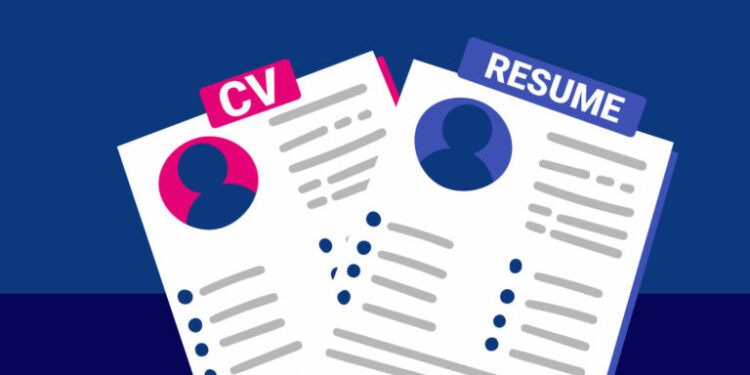A robust and an attractive CV/resume is vital in securing a befitting job. The following are some guidelines for producing a good CV/resume.
Be precise and concise
A CV/resume is not to be written as a narrative essay. It should be precise and concise. By being precise I mean that the details in your CV should be accurate and consistent. And by being concise, I mean that your CV should be brief, yet including all necessary information. This is important because recruiters or employers usually scan and skim submitted CVs/resumes. They should quickly identify what qualifies you to be a employee.
Your CV/resume should not exceed 2-3 pages
Closely linked to the idea of being precise and concise is the length of your CV/resume. There are important pieces of information needed by certain organisations. You can always design your CV/resume to suit the needs of the organisation you are sending it to. All you need to do is to study the job description of the position you are applying for. This will enable your recruiter or employer to quickly pick out the most important information needed from your document. If you do that, you are likely to reduce a lengthy CV/resume to between 1-3 pages. Moreover, your focus should mostly be on (but not limited to) your current achievements.
“Market” your key achievements
A CV/resume is like a “marketer”. It presents your scorecard in your absence. So, you must design it in such a way that it will demonstrate your best achievements and skills. Do not only focus on your academic qualifications. Include details about how practical you have been with your theoretical knowledge of your chosen field. Employers are looking for experienced employees. So, you need to impress them by demonstrating your work experience over the years. In this relation, you need to be specific with numbers and quantities. For example, rather than simply state that you supervised a large number of people in your previous company, you should be specific about the figure (300, 500 or 600 as the case may be). If you have sold a certain number of products, let your employer know the number. Don’t be vague about your experience and achievements.
Honesty is the best policy
While being specific about your achievements and wealth of experience, you must be sincere to provide correct information. Don’t inflate figures or sound hyperbolic. If you exaggerate these things, you will be misinforming or deceiving your prospective employer. So, be real and honest. Give the accurate details of your life and be confident that it will secure you a well-deserved appointment.
Keep your diction simple but powerful
Sounding unnecessary grandiloquent will only distract the person going through your CV/resume. Besides, replace technical terms with simple diction that can be understood by an average recruiter or Human Resources Managers (HRM) who may not be versed in your professional jargon. The principle is to used easy-to-understand words and expressions. However, use powerful/direct verbs that will drive home your point. Such verbs include worked, supervised, manufactured, written, authored, etc.
Include volunteer/community services
Nowadays, young graduates complain about the “work experience” requirement for most positions. But it is easy to have work experience before graduation. There are many organisations in need of volunteers. Devoting your vacation time to serve in those organisations will boost your CV/resume. You can also carry out simple community services relevant to your career. When you do, include them in your CV/resume. Employers are likely to rate you high for your volunteer services.
Proofread and edit your CV/resume
The appearance of errors on your CV/resume does not portray you in good light. It sends a negative message of lack of meticulousness on your part. You must always proofread your CV/resume, ensuring that it is free from grammatical and spelling errors. As much as possible, hand it over to two or three friends or colleagues to help you proofread and edit. Just as I have noted, your CV/resume represents you. So, if it is error-ridden, an employer will not be confident to select you for an appointment.



